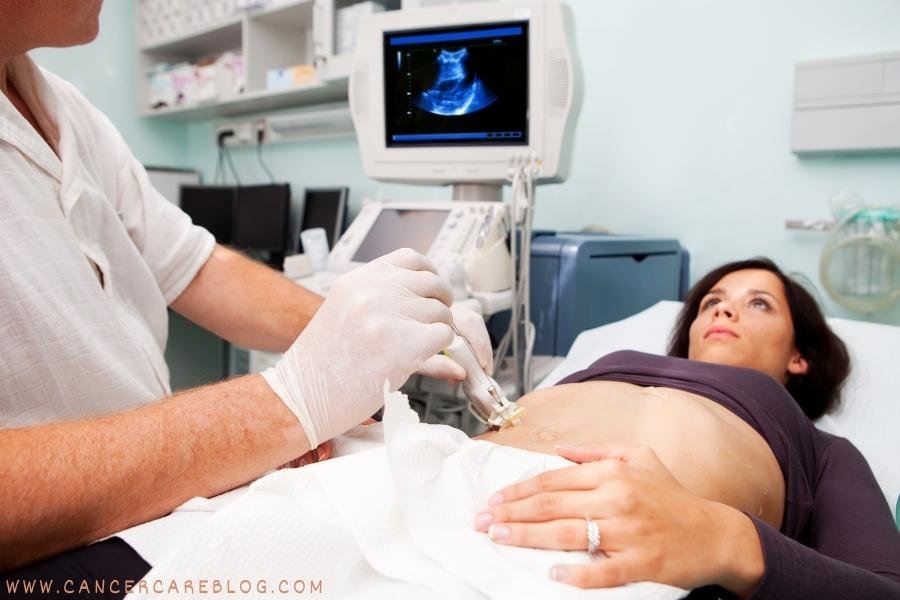Hearing that you need a cancer biopsy test can feel like a punch to the gut. It raises fear, stress, and a lot of questions. Will it hurt? Is it safe? What are the side effects of biopsy?
You’re not alone in wondering.
Many people feel nervous about the biopsy procedure, especially if it’s their first time. That’s totally normal. The good news? In most cases, biopsy side effects are mild and short-term. But it’s still important to understand the process, possible risks, and what to expect.
Let’s break it all down clearly—without scary medical talk. Just honest, simple facts.
What Is a Biopsy?
A biopsy is a test where doctors remove a small sample of tissue from your body. This sample is sent to a lab to check for cancer or other diseases. It helps doctors diagnose cancer, confirm if a lump is harmless, or figure out the right treatment.
There are different types of biopsies:
- Needle biopsy (thin needle removes tissue)
- Core biopsy (larger needle, deeper tissue sample)
- Surgical biopsy (a small cut to remove tissue)
- Image-guided biopsy (done with help of a CT scan or ultrasound)
- Biopsy marker placement (a tiny clip is left to mark the area)
Common Fears About Biopsy
Let’s be honest—biopsies sound scary. People often worry about:
- Pain during or after the procedure
- Spreading cancer cells (this is a myth, more on this below)
- Complications from anesthesia
- Getting a marker or clip left inside
- Hearing bad news after the test
Most of these fears come from not knowing what really happens. Once you understand the facts, it feels a little less overwhelming.
Common Biopsy Side Effects
Here are the most common biopsy side effects patients experience—depending on the type of biopsy.
1. Pain or Discomfort
You may feel soreness or pressure during and after the biopsy. This usually goes away in a few days. Over-the-counter pain relievers like Tylenol often help.
Tip: Rest and avoid heavy activity for 24–48 hours if advised by your doctor.
2. Bruising or Swelling
A small bruise or swelling at the site is very common, especially in needle or core biopsies.
Use a cold pack on the area (15 minutes on, 15 minutes off) to reduce swelling.
3. Bleeding
Mild bleeding or spotting is normal for a day or two. But if bleeding is heavy or doesn’t stop, contact your doctor right away.
This is more common in liver, kidney, or lung biopsies, where blood vessels are involved.
4. Infection
Infections are rare, but they can happen. Watch for signs like:
- Redness or warmth at the biopsy site
- Fever
- Pus or unusual discharge
If you notice these signs, call your doctor. Antibiotics may be needed.
5. Biopsy Marker Side Effects
In some biopsies (especially in breast cancer), a biopsy marker is placed. It’s a tiny metal clip, often made of titanium, that helps doctors find the area later.
Biopsy marker side effects are very rare. Most people don’t even feel it’s there. The marker is safe, won’t move, and usually stays in the body without issues.
Can a Biopsy Spread Cancer?
This is a common fear of biopsy—but the answer is clear: No, a biopsy does not spread cancer.
Studies show that the chances of this happening are extremely low. Doctors use safe techniques to avoid touching or disturbing surrounding tissues.
In fact, biopsy helps save lives, because early diagnosis means better chances of a cure.
What Helps After a Biopsy?
Here’s how you can feel more comfortable post-biopsy:
- Wear loose clothing
- Avoid pressure or tight bras (for breast biopsy)
- Use a cold compress to ease bruising
- Stay hydrated and rest
- Follow your care team’s instructions closely
Emotional Side Effects Matter Too
Waiting for results can be the hardest part. Even if the biopsy side effects are mild, the emotional toll is real.
You may feel:
- Anxious
- Stressed
- Afraid of what the results might say
That’s okay. Give yourself permission to feel it—and talk to someone. A friend, a support group, or a therapist can really help.
When to Call the Doctor
Call your doctor if you notice:
- Bleeding that doesn’t stop
- Fever above 100.4°F
- Signs of infection
- Severe pain or swelling
- Shortness of breath (for lung biopsy)
Most people recover quickly, but don’t ignore signs that something feels off.
Final Thoughts
Biopsies are a vital part of cancer diagnosis. Yes, they can be uncomfortable. And yes, they bring up fear. But knowing the truth about biopsy, and being aware of the possible biopsy side effects, can help you prepare with more confidence.
The goal of any biopsy is clarity—so you and your care team can make the next best move.
You’ve got this.



